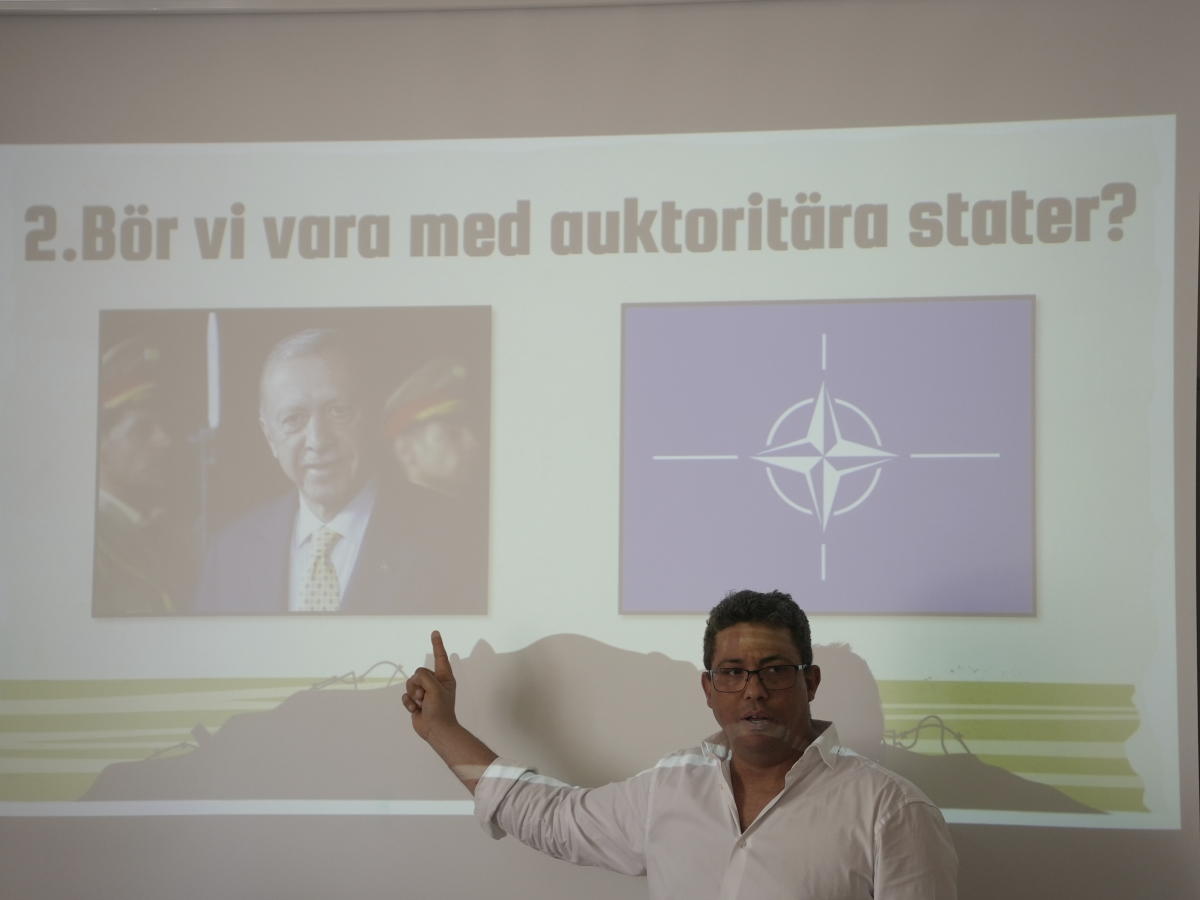STOCKHOLM, Sweden (AP) — The teacher’s opening question to students in Stockholm is blunt: “Has joining NATO increased the threat to Sweden?”
Sweden became the 32nd member of the Western military alliance in March. The abrupt end to the Scandinavian country’s two hundred years of neutrality after Russia’s large-scale invasion of Ukraine, and officials’ warnings about the Russian threat to Sweden itself, are worrying many. Teenagers are no exception.
Masai Björkwall helped design a national program to educate students about the history and geopolitics of the North Atlantic Treaty Organization, after students at Viktor Rydberg Junior High School earlier this year anxiously asked whether war could come to Sweden.
Their fears had been fueled by comments from the country’s top military commander and the Minister of Civil Defense that there was a danger of war and that the Swedes should prepare. The statements spread quickly and the national children’s helpline reported an increase in questions about war.
Sweden’s last war ended in 1814.
“Of course we have to address students’ concerns about the risk of conflict and war, and explain why we joined. We have had a policy of neutrality for so long, hundreds of years,” Björkwall said. “So I have to teach about what has happened in the world, what has changed that has made us change our policies.”
For teens unfamiliar with NATO, war and world politics, Björkwall’s new syllabus aims to demystify topics his students see online.
One lesson included a discussion of the implications of NATO’s Article 5, the alliance’s collective defense clause, under which an attack on one ally is considered an attack on all allies. The discussion emphasized that the clause does not lead to an automatic military response.
Student Linnea Ekman did not see any increased threat and pointed out that Article 5 does not require troops to be sent.
Another student, Edith Maxence, worried that the world would become even more divided as Sweden takes sides.
“I feel safe that Sweden is in NATO, but I feel unsafe that (…) it could start a war,” said the 14-year-old.
She’s not alone. Children’s Rights in Society, which runs the national children’s helpline, is receiving increasing calls from children asking whether NATO membership increases the risk to Sweden.
Callers rarely asked about war before Russia launched its full-scale invasion of Ukraine in 2022. But BRIS Secretary General Magnus Jägerskog said almost 20% of calls were about war in the week after military chief Micael Bydén and Civil Defense Minister Carl-Oskar Bohlin made his comments in January highlighting the risk.
Addressing such concerns is where the program Björkwall helped design comes into play.
Working with UR, a government-funded civic education agency that creates educational content for teachers and students, he and others produced a series of video programs about NATO, along with teaching materials. These programs, which started in March, have now reached an estimated 100,000 Swedish children.
For his final year students, Björkwall has a more challenging question: should Sweden join authoritarian countries? As examples, he cites Turkey and Hungary – NATO allies that postponed Swedish membership for months after its Nordic neighbor Finland joined.
The class is divided and almost half of the students are unsure.
“We found it difficult to draw one conclusion,” said 15-year-old Adam Sahlen, but acknowledged that “the military becomes stronger and better when we work together with others, especially with Turkey for example.”
Björkwall said he is careful not to advocate one position over another: “I want them to be mature, democratic citizens who can later vote consciously.”







